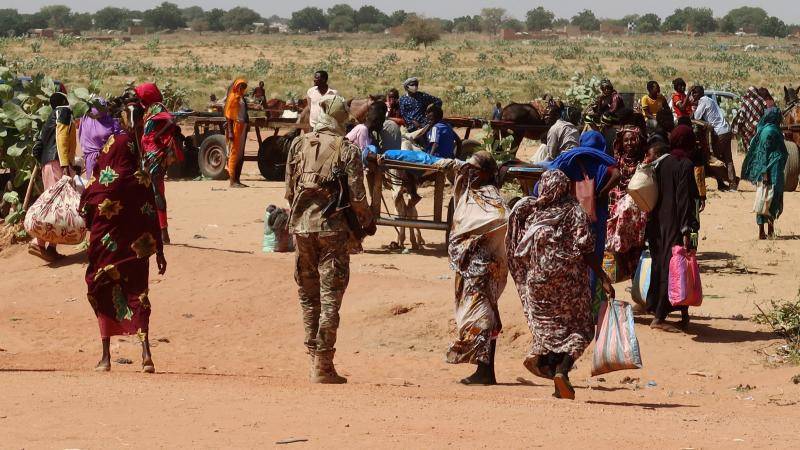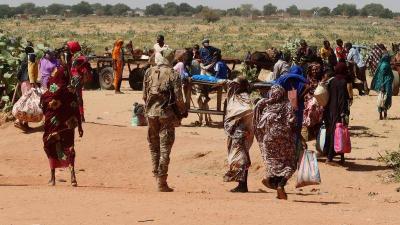Witnesses reported that Rapid Support Forces, a paramilitary group, clashed with the army outside the city of 'Wad Madani' in central Sudan on Saturday, opening a new front in the eight-month-long war and prompting thousands to flee. A video circulated on social media showed crowds of people gathering their belongings and leaving Wad Madani on foot. Many of them had sought refuge in the city to escape violence in the capital, Khartoum.
Ahmed Saleh, 45, told Reuters over the phone, "The war has followed us to Madani, so I am looking for a bus so that my family and I can escape." He added, "We are living in hell, and there is no one to help us," stating his intention to head south to the Sinnar state.
Witnesses indicated that the Sudanese army, which has controlled the city since the conflict began, launched airstrikes on Rapid Support Forces in the eastern part of the city, which is the capital of the Al-Jazeera state, in an attempt to repel the attack that started on Friday. The witnesses noted that the Rapid Support Forces responded with artillery, and reinforcements were seen moving toward the fighting. Residents also reported seeing Rapid Support Forces fighters in villages to the north and west of the city in recent days and weeks.
The United Nations reported that 14,000 people have fled the area so far, with a few thousand already arriving in other cities. Half a million people have sought refuge in the Al-Jazeera state, most of them from Khartoum. The ongoing fighting raises concerns about other cities controlled by the army in southern and eastern Sudan, where tens of thousands of residents have taken refuge.
U.S. Ambassador to the UN Linda Thomas-Greenfield stated, "I urge the Rapid Support Forces to refrain from launching attacks, and I urge all parties to protect civilians at all costs. Perpetrators of (acts of) terrorism will be held accountable."
The army and the Rapid Support Forces recently expressed skepticism regarding a mediation initiative from the Intergovernmental Authority on Development (IGAD) aimed at ending the war, which has caused the largest internal displacement crisis in the world and sparked warnings of famine-like conditions.
In Khartoum and cities in Darfur controlled by the Rapid Support Forces, residents have reported incidents of rape, looting, killings, and arbitrary detention. The group is also accused of committing ethnically motivated murders in West Darfur. The Rapid Support Forces deny these allegations and state that those found guilty of such crimes among their ranks will be held accountable.
On another front, activists reported renewed clashes after a relative calm for several weeks around the city of El Fasher, the capital of North Darfur state. The Rapid Support Forces, which have been encircling the city, ceased their advance earlier after other armed groups announced they would intervene. Residents also reported heavy strikes by the army in Nyala, the capital of South Darfur, and in Bahri, one of the cities forming the Khartoum metropolitan area.
While the army has not issued a statement regarding the fighting in Wad Madani, the Sudanese Ministry of Foreign Affairs described the Rapid Support Forces as "terrorists" for their "declared targeting of several secure villages and towns in eastern Al-Jazeera state that lack any military targets." The conflict erupted between the two sides following disagreements over political transition plans and the integration of the Rapid Support Forces into the army.




